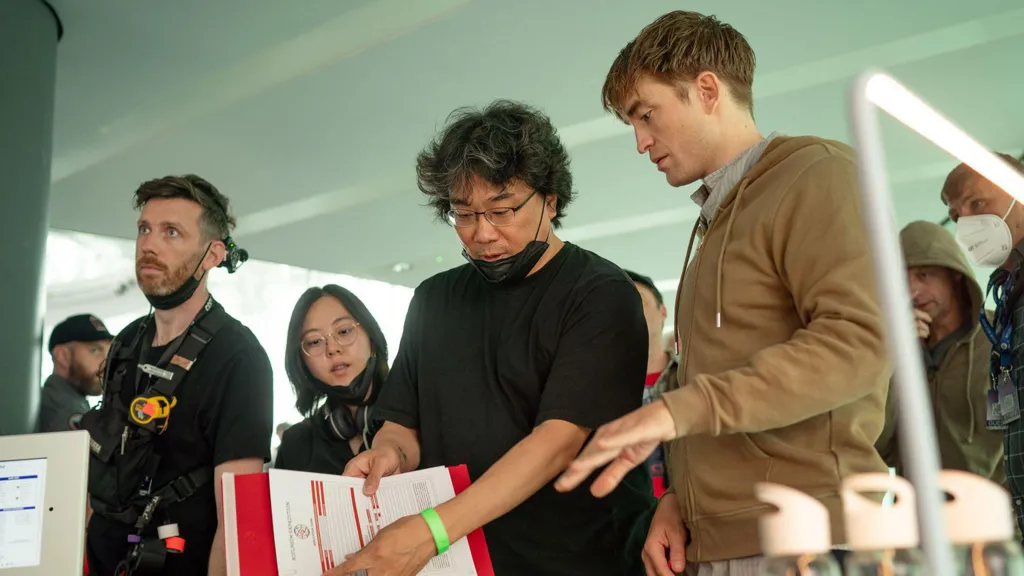Film tariffs are set to form part of trade negotiations between the UK and US after Donald Trump threatened to apply a 100% charge against movies made in foreign countries.
Trump said in an announcement overnight that he would apply tariffs to foreign-made films to help America's movie industry, which he said was dying "a very fast death".
In response, the UK government said trade negotiations with Washington were ongoing and it was taking a "calm and steady approach" to talks in a bid to "ease pressure on UK businesses".
UK filmmakers warned freelancers in the industry risked being "jobless" if US productions were pulled, with one union saying the tariffs could be a "knock-out blow".
The UK film sector is worth £1.36 billion and employs more than 195,000 people, the government said in October.
Much of the detail of the new tariff has yet to be confirmed.
White House spokesman Kush Desai said later on Monday: "Although no final decisions on foreign film tariffs have been made, the administration is exploring all options to deliver on President Trump's directive to safeguard our country's national and economic security while Making Hollywood Great Again."
But there is worry that UK film companies, which often produce movies with US firms – including recent blockbusters like Barbie and Wicked – could be badly hit.
"If those US films don't get partly produced or produced in the UK, freelancers are going to be jobless. I'm telling you now, they really are going to be jobless," Kirsty Bell, chief executive of UK production company Goldfinch, said.
Philippa Childs, head of media and entertainment trade union, Bectu, echoed those fears: "These tariffs, coming after Covid and the recent slowdown, could deal a knock-out blow to an industry that is only just recovering and will be really worrying news for tens of thousands of skilled freelancers who make films in the UK."
A parliamentary committee's report published last month noted the UK's film and high-end television industry is "dominated" by inward investment from US studios and that this "brings significant economic and social benefits to the UK".
Culture, Media and Sport (CMS) chairwoman Dame Caroline Dinenage said on Monday that MPs had warned "against complacency on our status as the Hollywood of Europe" when the report came out.
"President Trump's announcement has made that warning all too real," she said.
Dame Caroline argued that making it more difficult to produce films in the UK was not in the interests of American businesses, many of which have invested in UK facilities, such as sound stages and studios.
She urged ministers to "urgently prioritise this as part of the trade negotiations currently under way".
Shadow culture secretary Stuart Andrew said Labour must "get a grip" to secure a trade deal with the US and "protect the UK film industry, otherwise we risk seeing long-term damage to a sector that is a global success".

